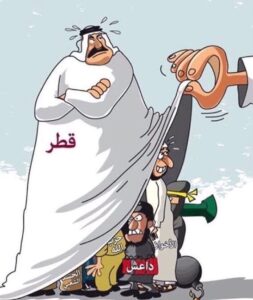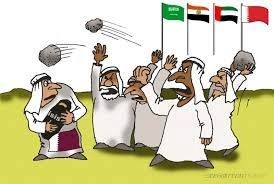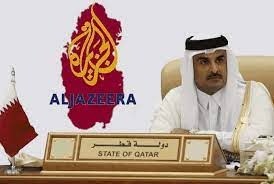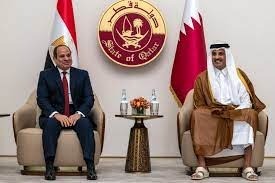The longstanding tensions in the Gulf region have come to the forefront of international attention as the blockade against Qatar, led by its Gulf neighbors, entered its third year. This protracted crisis, marked by accusations and acrimony, highlights the complex geopolitical dynamics and divergent foreign policies that have strained Qatar’s relations with its neighbors, particularly Saudi Arabia. This article delves into the multifaceted aspects of the Qatar-Gulf conflict, examining the core issues and the global implications of this enduring rift.
Divergent Foreign Policies:
The central point of contention in the Gulf crisis is Qatar’s unconventional foreign policy approach, which starkly contrasts with the expectations of its Gulf neighbors. In a region predominantly led by absolute monarchs with a strong grip on domestic politics, Qatar’s deviation from the traditional diplomatic orthodoxy has raised concerns. Qatar’s willingness to engage in dialogue with Iran, a regional Shia Muslim power, is perceived as a threat to Sunni solidarity, a core principle upheld by many Gulf nations, particularly Saudi Arabia. This policy discord has underpinned the tensions that have persisted for over two decades.
Accusations and Hostility:
The Gulf dispute has taken a decidedly acrimonious turn, fueled by the hostile rhetoric on both sides. Saudi Arabia, emboldened by the support of the new U.S. President, Donald Trump, has accused Qatar of supporting religious extremists and secretly arming jihad groups. Qatar vehemently denies these charges, but it’s noteworthy that similar allegations have been directed at nations now condemning Qatar, further complicating the situation. These mutual accusations underscore the intricacies of the Gulf’s political landscape and the deeply rooted tensions.
Al-Jazeera’s Role:
One of the most prominent targets in the ongoing blockade against Qatar is Al-Jazeera, the global television news network funded by the Qatari government. Al-Jazeera has been depicted as a propagandist for the Muslim Brotherhood, a portrayal that resonates with leaders who feel challenged by the network’s reporting. This perception has added to the enmity directed at Qatar, emphasizing the role of the broadcaster in magnify the Gulf crisis.
Qatar’s Contradictory Position:
The Emir of Qatar’s unwavering support for Al-Jazeera and his advocacy for political change and empowerment of ordinary citizens in the Arab world contrast with the autocratic governance within Qatar. While the Emir champions these causes on the global stage, questions arise about the sincerity and consistency of Qatar’s stance, especially concerning political reform within its own borders.


Regional Divergence:
The stark contrast between Qatar’s political approach and that of fellow autocratic leaders, particularly in Egypt and the Gulf, has deepened the rift. Egypt’s President Sisi took drastic measures to sideline the Muslim Brotherhood, portraying them as intolerable Islamists, while Qatar supports the Brotherhood’s cause and advocates for political reform. These clashing ideologies have further inflamed regional tensions.
Global Implications:
The Gulf crisis is no longer limited to regional borders. Several countries, including members of the Arab League, have taken sides in the dispute, further internationalizing the conflict. Turkey and Russia have emerged as allies to Qatar, with Turkey passing a law to expedite the deployment of troops to
Qatar and Russia inviting Qatar’s foreign minister for talks in Moscow.
The Emir of Kuwait, traditionally a peacemaker within the GCC, faces a formidable diplomatic challenge in trying to find a solution that appeases both sides. However, there is little indication of a significant breakthrough, and the crisis persists, raising concerns of greater instability in the Middle East.


Global Concerns amidst Gulf Crisis
The Gulf crisis between Qatar and its neighbors is a complex and multifaceted issue with deep-seated historical, political, and ideological roots. It has become an international concern due to its implications for regional stability. As the diplomatic efforts continue, the world watches closely, hoping for a resolution that will not only ease tensions in the Gulf but also reduce the potential for further instability in a region that has long been relied upon for its stability, even if not for its democratic values.
